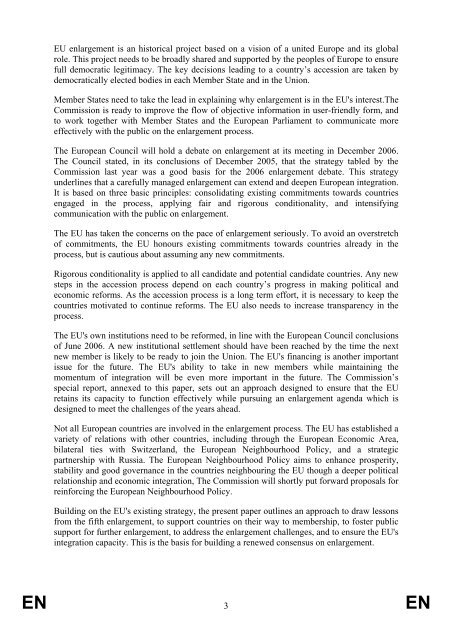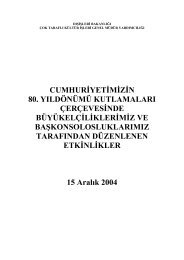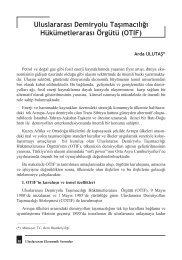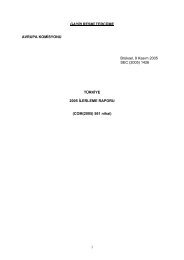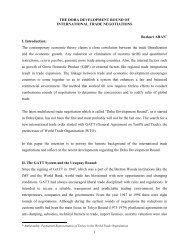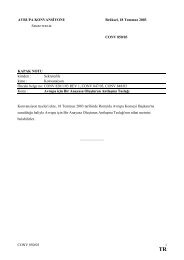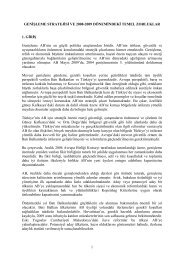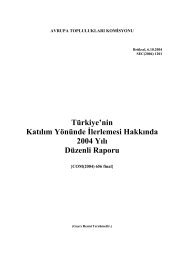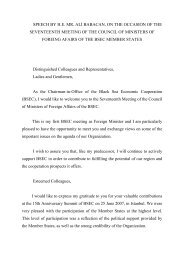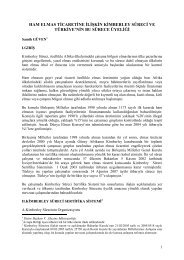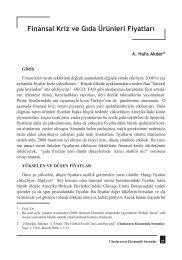Enlargement Strategy and Main Challenges 2006 - 2007
Enlargement Strategy and Main Challenges 2006 - 2007
Enlargement Strategy and Main Challenges 2006 - 2007
Create successful ePaper yourself
Turn your PDF publications into a flip-book with our unique Google optimized e-Paper software.
EU enlargement is an historical project based on a vision of a united Europe <strong>and</strong> its global<br />
role. This project needs to be broadly shared <strong>and</strong> supported by the peoples of Europe to ensure<br />
full democratic legitimacy. The key decisions leading to a country’s accession are taken by<br />
democratically elected bodies in each Member State <strong>and</strong> in the Union.<br />
Member States need to take the lead in explaining why enlargement is in the EU's interest.The<br />
Commission is ready to improve the flow of objective information in user-friendly form, <strong>and</strong><br />
to work together with Member States <strong>and</strong> the European Parliament to communicate more<br />
effectively with the public on the enlargement process.<br />
The European Council will hold a debate on enlargement at its meeting in December <strong>2006</strong>.<br />
The Council stated, in its conclusions of December 2005, that the strategy tabled by the<br />
Commission last year was a good basis for the <strong>2006</strong> enlargement debate. This strategy<br />
underlines that a carefully managed enlargement can extend <strong>and</strong> deepen European integration.<br />
It is based on three basic principles: consolidating existing commitments towards countries<br />
engaged in the process, applying fair <strong>and</strong> rigorous conditionality, <strong>and</strong> intensifying<br />
communication with the public on enlargement.<br />
The EU has taken the concerns on the pace of enlargement seriously. To avoid an overstretch<br />
of commitments, the EU honours existing commitments towards countries already in the<br />
process, but is cautious about assuming any new commitments.<br />
Rigorous conditionality is applied to all c<strong>and</strong>idate <strong>and</strong> potential c<strong>and</strong>idate countries. Any new<br />
steps in the accession process depend on each country’s progress in making political <strong>and</strong><br />
economic reforms. As the accession process is a long term effort, it is necessary to keep the<br />
countries motivated to continue reforms. The EU also needs to increase transparency in the<br />
process.<br />
The EU's own institutions need to be reformed, in line with the European Council conclusions<br />
of June <strong>2006</strong>. A new institutional settlement should have been reached by the time the next<br />
new member is likely to be ready to join the Union. The EU's financing is another important<br />
issue for the future. The EU's ability to take in new members while maintaining the<br />
momentum of integration will be even more important in the future. The Commission’s<br />
special report, annexed to this paper, sets out an approach designed to ensure that the EU<br />
retains its capacity to function effectively while pursuing an enlargement agenda which is<br />
designed to meet the challenges of the years ahead.<br />
Not all European countries are involved in the enlargement process. The EU has established a<br />
variety of relations with other countries, including through the European Economic Area,<br />
bilateral ties with Switzerl<strong>and</strong>, the European Neighbourhood Policy, <strong>and</strong> a strategic<br />
partnership with Russia. The European Neighbourhood Policy aims to enhance prosperity,<br />
stability <strong>and</strong> good governance in the countries neighbouring the EU though a deeper political<br />
relationship <strong>and</strong> economic integration, The Commission will shortly put forward proposals for<br />
reinforcing the European Neighbourhood Policy.<br />
Building on the EU's existing strategy, the present paper outlines an approach to draw lessons<br />
from the fifth enlargement, to support countries on their way to membership, to foster public<br />
support for further enlargement, to address the enlargement challenges, <strong>and</strong> to ensure the EU's<br />
integration capacity. This is the basis for building a renewed consensus on enlargement.<br />
EN 3 EN


